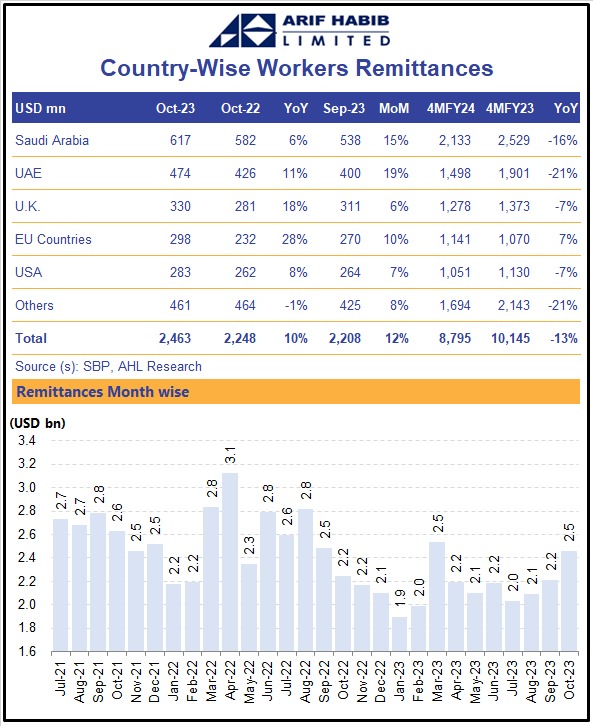Business
Workers’ remittances increase by 11.5% in October
-

 Latest News4 hours ago
Latest News4 hours agoIn Sharaqpur, two children drown while taking a bath in a canal.
-

 Latest News4 hours ago
Latest News4 hours agoPresident Zardari will speak to a joint session of parliament today as we begin a new parliamentary year.
-

 Latest News4 hours ago
Latest News4 hours agoBeyond Political Affiliation, PML-N Will Serve the Masses
-

 Latest News4 hours ago
Latest News4 hours agoDPM Restates Abundant Support for the Palestinian Cause
-

 Latest News5 hours ago
Latest News5 hours agoGovernment team and IMF start discussing agricultural income tax
-

 Latest News4 hours ago
Latest News4 hours agoPTI Encouraged Chaos and Sabotage: Rana Tanveer
-

 Latest News4 hours ago
Latest News4 hours agoDY PM Talks With World Leaders About Bilateral Partnerships
-

 Latest News4 hours ago
Latest News4 hours agoNA, Senate Sessions: Tomorrow’s Meeting of Both Houses of Parliament

























